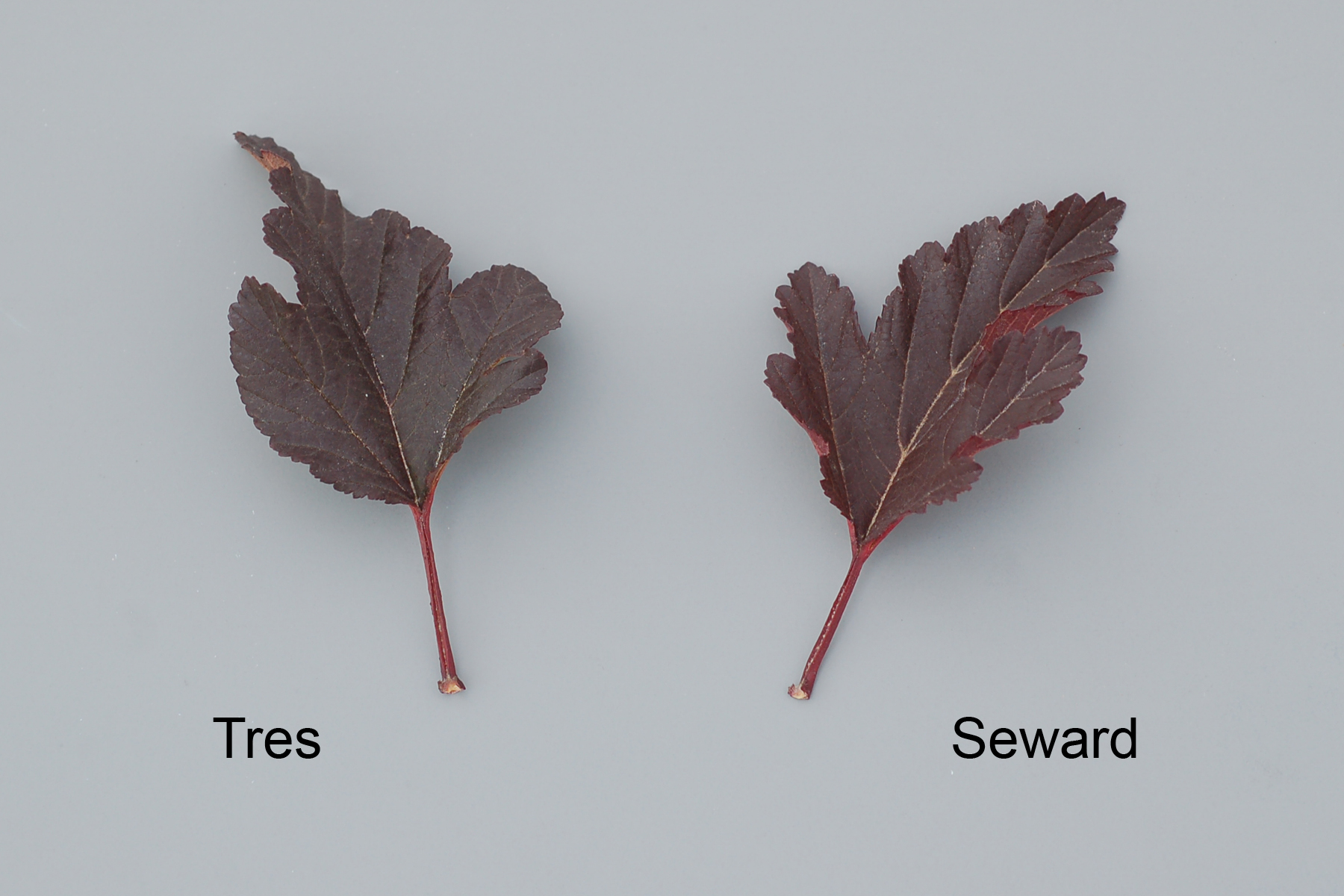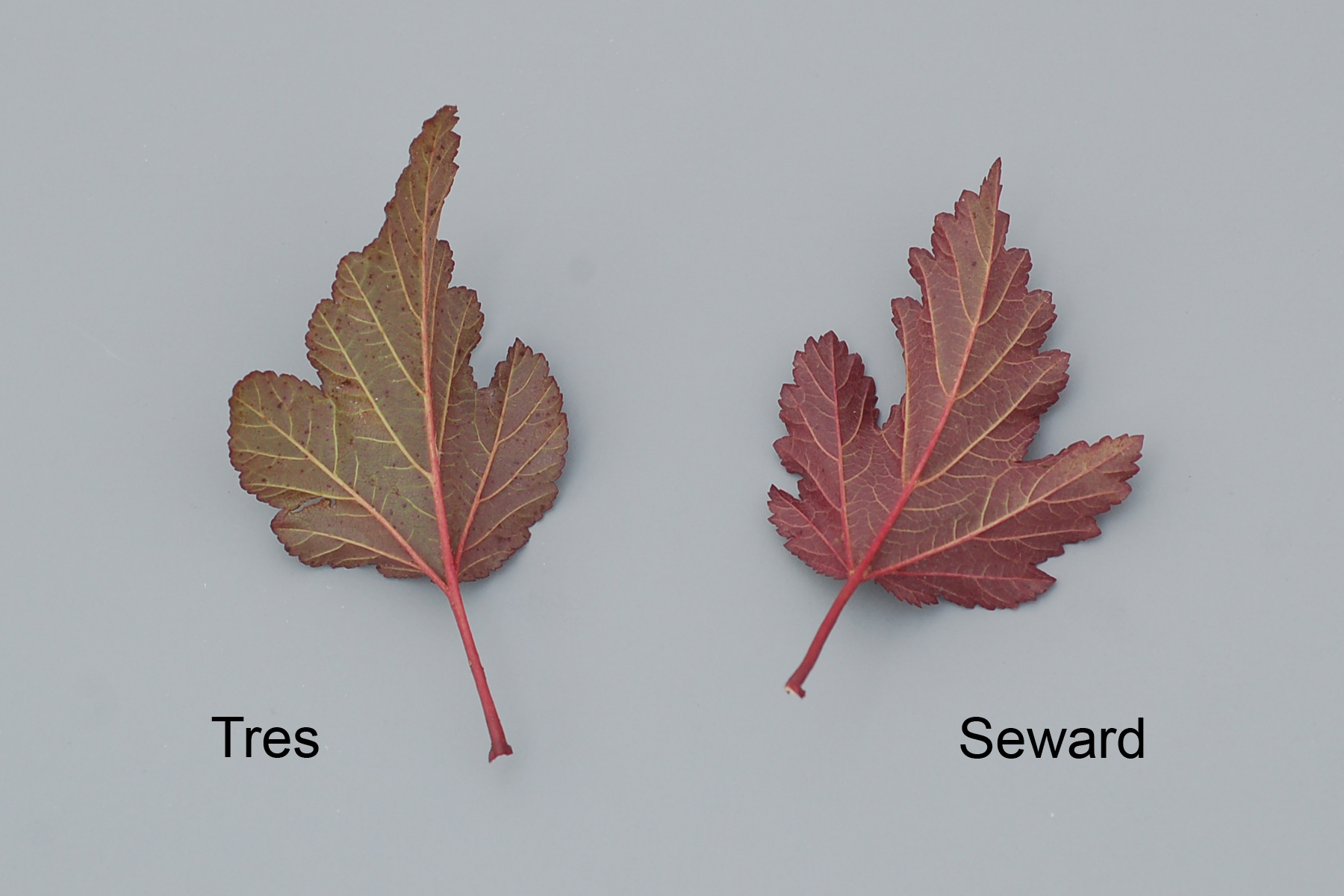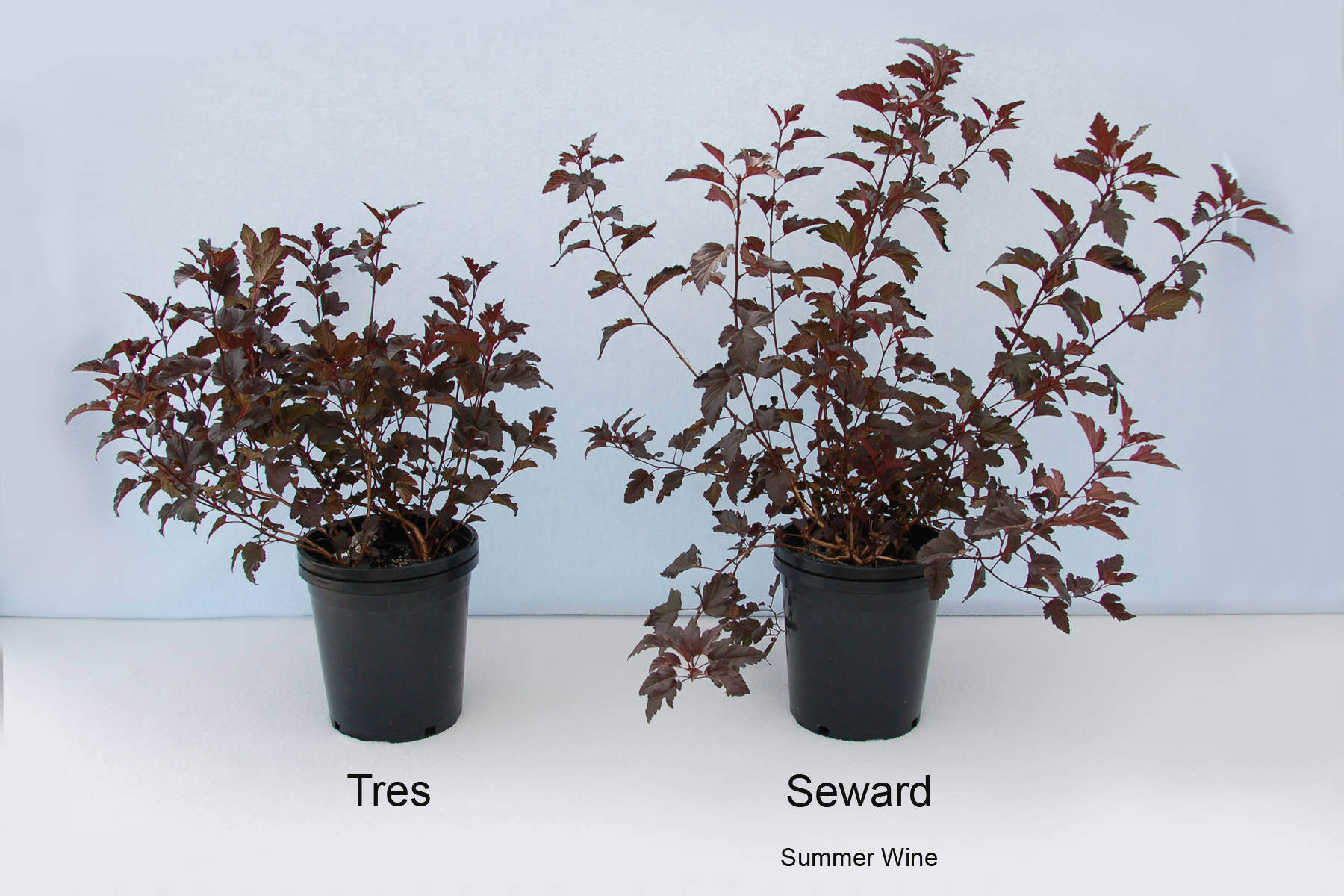Tres
| Denomination: | 'Tres' |
|---|---|
| Previously Proposed Denomination: | 'R. Tres' |
| Botanical Name: | Physocarpus opulifolius |
| Applicant/Holder: |
Spring Meadow Nursery, Inc. 12601 120th Avenue Grand Haven, Michigan 49417 United States of America |
| Breeder: |
Timothy D. Wood, Spring Lake, United States of America |
| Agent in Canada: |
BioFlora Inc. 38723 Fingal Line R.R. #1 St. Thomas, Ontario N5P 3S5 Canada Tel: 519-317-7511 |
| Application Date: | 2007-08-23 |
| Application Number: | 07-5988 |
| Grant of Rights Date: | 2009-11-30 |
| Certificate Number: | 3687 |
| Date rights surrendered: | 2017-11-28 |
Variety Description
Variety used for comparison: 'Seward' (Summer Wine)
Summary: The plants of 'Tres' are shorter and narrower than those of 'Seward'. 'Tres' has medium to dense foliage while 'Seward' has sparse to medium foliage density. The branchlets of 'Tres' are shorter than those of 'Seward'. 'Tres' has crenate leaf margins while 'Seward' has dentate to denticulate margins. The upper side of the leaves of 'Tres' have strong glossiness while those of 'Seward' have weak to medium glossiness. 'Tres' differs slightly from 'Seward' in the colour on the upper side of the leaves.
Description:
SHRUB: deciduous, bushy upright, medium to dense foliage
STEM: reddish brown, strong to very strong anthocyanin colouration
BRANCH: medium density, erect to semi-erect attitude, medium to rigid, reddish brown bark
BRANCHLET: medium density, reddish brown, very strong anthocyanin colouration
LEAF: alternate arrangement, ovate, acute apex, rounded base, crenate margin, medium degree of folding when newly opened, weak to medium depth of lobing, strong glossiness on upper side, dark brown on upper side when newly opened, dark brown on upper side when fully opened, brown green (RHS 191B) with dark brown (RHS N186C) tones on lower side when newly opened, brown green (RHS 147B) on lower side when fully opened
LEAF MIDRIB: weak prominence on upper side, medium to strong prominence on lower side, medium to strong anthocyanin colouration on lower side, dark purple red to dark pink red (RHS 53B-C) on lower side
PETIOLE: present, medium length
Origin & Breeding History: 'Tres' originated from a controlled cross between the female parent 'Nana' and the male parent 'Monlo'. The cross was conducted by the breeder Timothy D. Wood in June 2000 in Grand Haven, Michigan. The new variety was selected in 2003 based on foliage colour and plant growth habit. 'Tres' was asexually reproduced for the first time by softwood cuttings in June 2003 in Grand Haven, Michigan, United States.
Tests & Trials: Trials for 'Tres' were conducted in an outdoor container trial during the summer of 2008, in St. Thomas, Ontario. The trial included a total of 15 plants of the candidate variety and 8 plants of the reference variety. Trials were arranged outdoors in rows with approximately 1 metre spacing between plants. Observations and measurements were taken on September 16, 2008.
All colour determinations were made using the 2001 Royal Horticultural Society (RHS) Colour Chart.
Comparison tables for 'Tres' with reference variety 'Seward'
Plant height (cm)
| 'Tres' | 'Seward' | |
|---|---|---|
| mean | 46.9 | 58.8 |
| std. deviation | 2.33 | 2.08 |
Plant width (cm)
| 'Tres' | 'Seward' | |
|---|---|---|
| mean | 58.3 | 76.2 |
| std. deviation | 3.06 | 4.32 |
Branchlet length (cm)
| 'Tres' | 'Seward' | |
|---|---|---|
| mean | 28.1 | 45.1 |
| std. deviation | 2.02 | 3.81 |
Main colour on upper side of leaf (RHS)
| 'Tres' | 'Seward' | |
|---|---|---|
| newly opened | darker than 200A | 200B with strong tones of 187A |
| fully opened | N200A | N200A with tones of 187A |
Click on image for larger view

Ninebark: 'Tres' (left) with reference variety 'Seward' (right)
Click on image for larger view

Ninebark: 'Tres' (left) with reference variety 'Seward' (right)
Click on image for larger view

Ninebark: 'Tres' (left) with reference variety 'Seward' (right)
- Date modified: